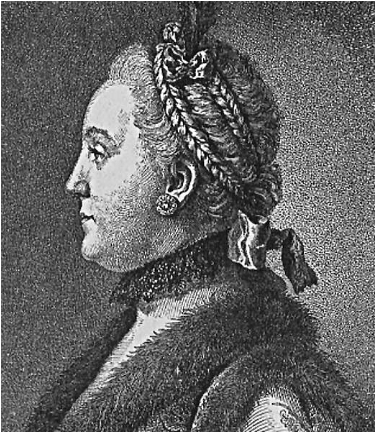 |
 |
 |
 |

At the age of fifteen, Catherine married the future Peter III, who, a year after he became emperor in 1761, was murdered in a coup d'état. Catherine, then thirty-three, became empress in 1762, and sought to continue Peter I's plan of introducing Russia to Western European culture. Russian court life flourished under the influence of Catherine's Enlightenment ideas, and Petersburg became a center of European culture. Catherine was also a prominent patron of Russian writers and artists, as well as a writer herself. During her reign, the University of Moscow achieved an unprecedented degree of respect.
Catherine's almost exclusive attention to the court and high culture resulted in a number of political revolts. Although she originally favored a free press and relaxed censorship laws, in the wake of the French Revolution she felt forced to impose greater restrictions on political discourse.
In the two Russo-Turkish Wars -- one from 1768 to 1774, the other from 1787 to 1792, Catherine secured both the Ukraine and the north shore of the Black Sea for Russia, and imposed Russian rule on much of Poland.